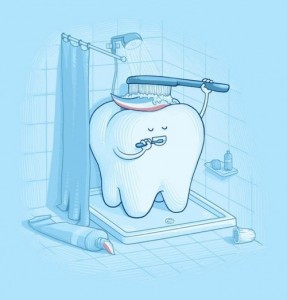What are sealants?
Dental sealant is a thin, plastic coating painted on the chewing surfaces of teeth — usually the back teeth (the premolars and molars). The sealant quickly bonds into the depressions and grooves of the teeth, forming a protective shield over the enamel of each tooth.
Although thorough brushing and flossing can remove food particles and plaque from smooth surfaces of teeth, they cannot always get into all the nooks and crannies of the back teeth to remove the food and plaque. Sealants protect these vulnerable areas from tooth decay by “sealing out” plaque and food.
Who Should Get Sealants?
Because of the likelihood of developing decay in the depressions and grooves of the premolars and molars, children and teenagers are candidates for sealants. However, adults without decay or fillings in their molars can also benefit from sealants.
Typically, children should get sealants on their permanent molars and premolars as soon as these teeth come in. In this way, the sealants can protect the teeth through the cavity-prone years of ages 6 to 14.
In some cases, dental sealants may also be appropriate for baby teeth, such as when a child’s baby teeth have deep depressions and grooves. Because baby teeth play such an important role in holding the correct spacing for permanent teeth, it’s important to keep these teeth healthy so they are not lost too early.
How Are Sealants Applied?
Applying sealant is a simple and painless process. It takes only a few minutes for your dentist or hygienist to apply the sealant to seal each tooth. The application steps are as follows:
- First the teeth that are to be sealed are thoroughly cleaned.
- Each tooth is then dried, and cotton or another absorbent material is put around the tooth to keep it dry.
- An acid solution is put on the chewing surfaces of the teeth to roughen them up, which helps the sealant bond to the teeth.
- The teeth are then rinsed and dried.
- Sealant is then painted onto the tooth enamel, where it bonds directly to the tooth and hardens. Sometimes a special curing light is used to help the sealant harden.
How Long Do Sealants Last?
Sealants can protect teeth from decay for up to 10 years, but they need to be checked for chipping or wearing at regular dental check-ups. Your dentist can replace sealants as necessary.
Does Insurance Cover the Cost of Sealants?
Many insurance companies cover the cost of sealants. Check with our office so we can verify if your insurance will cover the cost of sealants.



 Do you see the date for your next
Do you see the date for your next